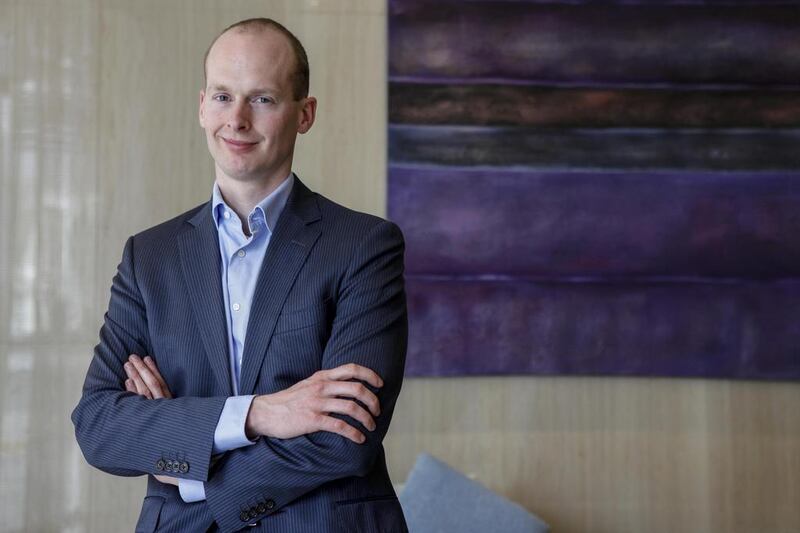DUBAI // The UAE could play host to a mission simulation for Mars One colony candidates early next year, according to the chief executive and founder of the project.
Bas Lansdorp said Dubai’s dry weather and its place at the crossroads of the world makes it a potential host city for the prestigious project.
“We want to bring together all the remaining candidates in the beginning of next year in a built copy of our Mars outpost here on Earth,” Mr Lansdorp said during a visit to the UAE this week.
“We will give them team challenges, too. First of all, to see if they are the right team players but also to start building the teams that we will hire at the end of the selection process to go full-time into training for Mars One.
“That’s the most exciting step,” said Mr Lansdorp.
Of 200,000 applicants, 100 remain, including two candidates from the UAE.
“Up until now, it has simply been eliminating people who are not qualified,” Mr Lansdorp said. “And now we’re going to determine who are the people who might be qualified, because then there is 10 years of training and testing for our candidates to undergo in the simulation outpost for conditions that they may face on Mars.”
Trainers will have to see if the team works well together and can solve the problems given to it.
Mr Lansdorp is in negotiations over different locations, including one in The Netherlands.
“The UAE is certainly a possibility,” he said. “It’s very dry here, which is good, but it’s also very warm, which is not very representative for Mars, especially as it’s very cold and activities done in the space suit will be very difficult to simulate. But it’s definitely a possibility.”
The first outpost, which will train up to six teams of four, would require easy access from all countries.
“That’s a check for the Emirates as we can bring people here easily,” Mr Lansdorp said. “We will need to test [locations], like Iceland or northern Canada, and before departure, it is very important our candidates go to a very dangerous place, like Antarctica, to really have the feeling of surviving in a place where you cannot get any support. In Antarctica, it’s impossible to send support in the winter to the crews that are there.”
Matthew Cochran, chairman of the Defence Services Marketing Council, a group of selected individuals from companies in the defence, space and security industries, said the UAE should be on the shortlist.
“There has been talk of a spaceport in the UAE,” he said. “So the UAE should be a place to look at because people like [Virgin Galactic tycoon] Richard Branson are looking at it and there is that appetite.
“The space race is on, and the UAE is part of only 15 countries that have a space programme, so it should really be taken into consideration.”
Mr Lansdorp also visited the Emirates Institution for Advanced Science and Technology (EIAST) in Dubai.
“It was a very preliminary meeting on to see if there is something we can do together,” he said. “It has recently announced the Mars probe, so there is definitely a combined interest. In principle, anything is possible from our point of view and we’ll investigate which direction that goes.”
Potential investors are still welcome to participate in the US$6 billion (Dh22bn) project.
“More people from the region should look at investing into this project,” said Mikolaj Zielinski, a Dubai resident from Poland and candidate for the Mars One mission.
“I’m quite motivated for the next step and it’s nice to see Mr Lansdorp because maybe in the future we will spend a lot more time on this project together.”
The other UAE resident still in the running is Indian Rikita Singh.
For more information, visit www.mars-one.com.
cmalek@thenational.ae






